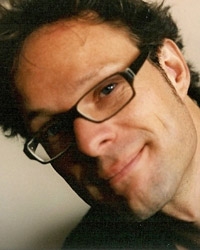Veni and NWO Free Competition grant for dr. Tesse Stek
Dr. Tesse Stek has been awarded a Veni and a Free Competition (within the Humanities field) grant by the Netherlands Organisation for Scientific Research (NWO) for his research projects.

These new Leiden research projects examine the role of Roman non-urban settlements in the formative phase of the Roman empire (c.4th-1st centuries BC). Both ancient and modern viewers have portrayed Roman colonies as key-factors in the spread of the urban model and are sharply contrasted with the non-urban settlement organization that prevailed in the conquered native areas. Several aspects of this urban, Roman model have been attacked by recent studies however, and it now becomes clear that non-urban settlements and institutions must have played an important role in early Roman expansion and colonization.
Focusing on clustered rural settlements
Understanding how this non-urban settlement organization functioned is a key step for advancing the field. Both projects aim to contribute to this debate by focusing on clustered rural settlements. By combining epigraphical, literary and especially field survey archaeological evidence, the role of rural communities within early Roman colonial society is studied.
The two grants
Veni grant:
Colonial rural networks. Dispersed settlement and colonial expansion in the Roman Republic (c. 4th -1st centuries BC)
This project focuses on 1) analyzing the relationships between colonial power centres and village communities on the basis of documentary evidence (mainly inscriptions) and 2) examining village-sites archaeologically by using existing datasets of the colonial territories, which are 3) supported by fieldwork in selected key-sites.
Free competition:
Roman colonial landscapes. Non-urban settlement organization and Roman expansion in the Roman Republic (4th-1st centuries BC)
This project proposes to investigate non-urban Roman colonial settlement organization and its alleged distinctiveness in comparison to native society through: 1) collecting and analyzing archaeological field survey datasets of early colonial territories in Central-Southern Italy and comparing them to contingent non-colonial areas, and 2) targeted fieldwork in selected key-sites within these areas.
Forming a new conception of early Roman colonization
Both projects aim to develop a new conception of early Roman colonization that is not based on the urban model, but on a distinct "multiple-core" settlement organization. This model could shed a different light on the traditional notion of Roman colonies as key-factors in the urbanization and "romanization" of the conquered territories. In particular, it presupposes different mechanisms of cultural change by fragmenting the traditional monolithic city-state model and de-centering urban centers as loci of cultural development. The proposed model not only breaks down the present dichotomy between "Roman-urban" and "native-non-urban" models, but by suggesting a different trajectory of Roman expansion it may ultimately stimulate us to rethink the common association of Roman imperial success with urbanism.
